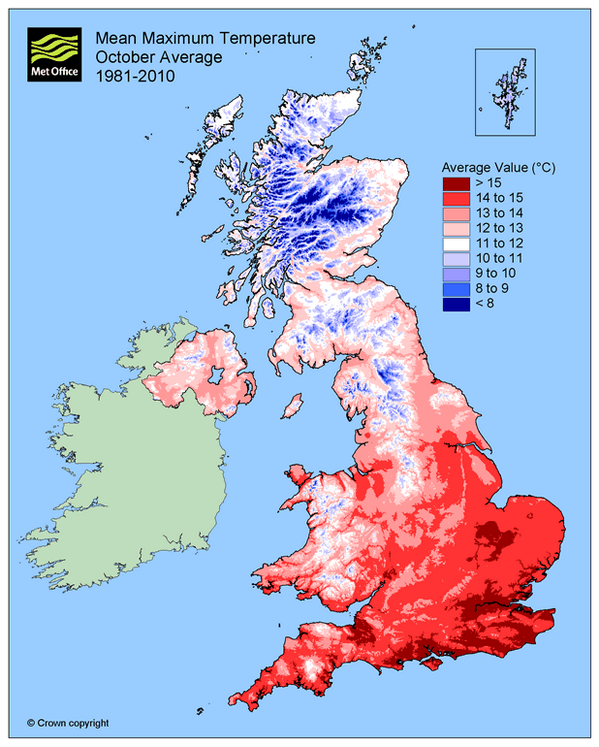It is the time of year when the preparations for winter weather begin.
But while gloves, scarves and hats may already have been looked out, a rather surprising development has occurred.
Yes, the north has actually got warmer this weekend.
Last night, temperatures in the coastal areas of the north-east and Highlands all hit the 14C mark.
To put this in perspective, this would normally be the maximum temperature expected during the day at this time of year.
The warm front looks like it will continue tonight going into tomorrow, with temperatures predicted to hit 12-13 degrees.
A spokeswoman for the Met Office explained the reason for the abnormal spike in temperature.
She said: “The warm temperatures are the result of Hurricane Fay, which has already dissipated over the Atlantic.
“The hurricane has left behind an area of warm air which is now passing across the UK.
“An area of low pressure is dragging the air across the UK which is coming from a westerly direction.
“That is causing some of the unsettled weather you will see in other parts of Scotland but are not likely to affect the north-east.
“It’s the kind of unsettled weather that you expect from autumn, but what is unusual is it is making it warmer.”
The warm temperatures are expected to continue over the next two days but gradually drop and return to normal by the middle of next week.
Yesterday, it was reported that certain areas of the north could experience the after-effects of Hurricane Gonzalo at the beginning of next week.
Specifically, the western Highlands could be hit by stormy weather as exposed coastal regions and higher ground across the UK would be particularly under threat.
However, a Met Office meteorologist said the impact would mirror stormy weather often felt at this time of year – but would be unlikely to cause problems of the scale seen in recent floods.
The hurricane has already passed through the Caribbean where it caused devastation, killing one person and injuring another 12.
It hit Bermuda in the last 24 hours and is thought to be the strongest to hit the islands in the past 11 years.
